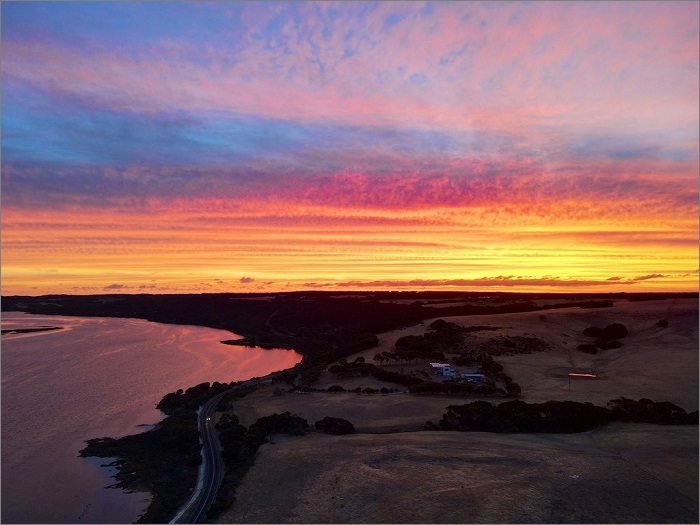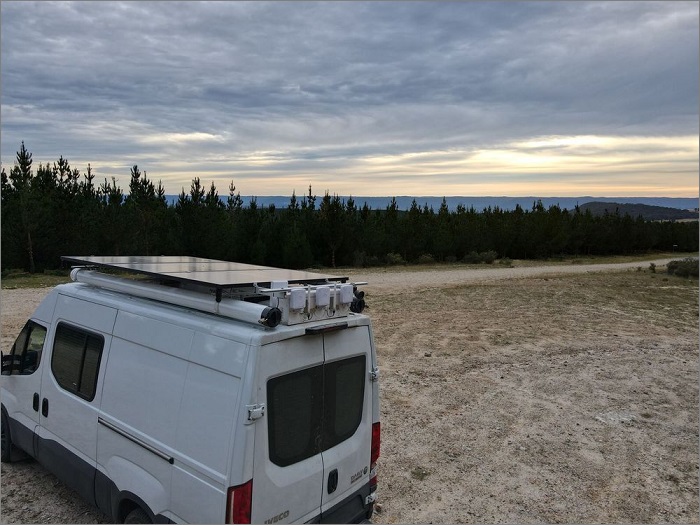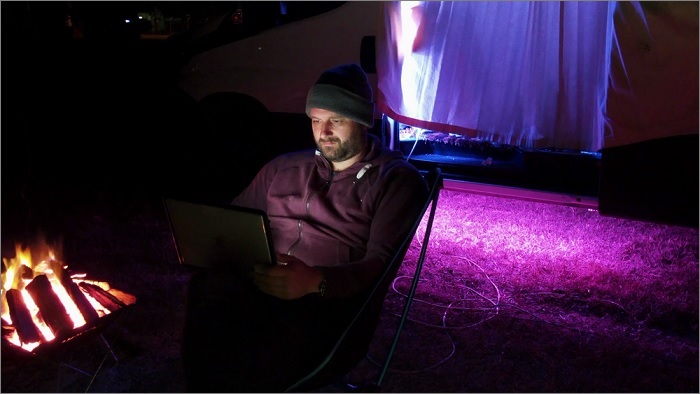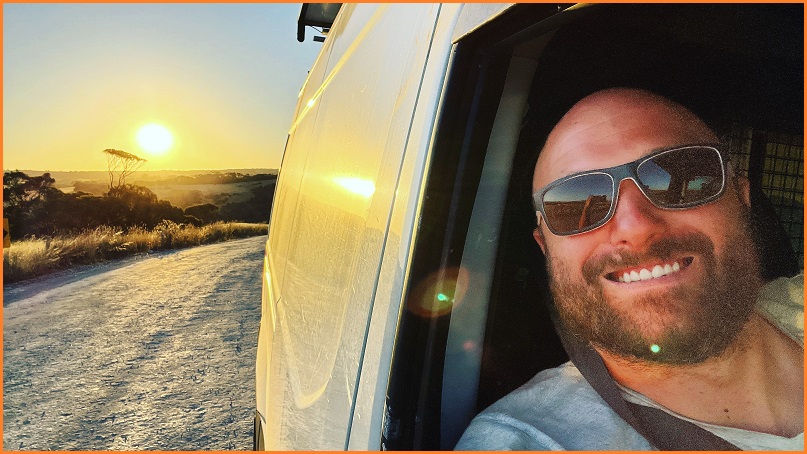As news of a world-changing virus began to make headlines in late 2019, the life of Sydney-based software developer Geoff Huntley was moving in a whole new direction.
His long-term relationship had failed, leaving Geoff’s young family fractured.
“The entire experience left me shattered, soul destroyed and burnt out beyond belief,” Geoff wrote in his blog.
Thankfully an acquaintance invited Geoff on a camping trip which helped him find some perspective on life. Geoff soon found himself travelling into the Tasmanian bush where he fell in with a crowd of fun-loving hippies for whom “love was free”.
For some of that crowd, this wasn’t a temporary Tasmanian vacation. Rather, they lived the lifestyle permanently – in vans.
It was an inspirational period of self-reflection that helped Geoff see more clearly the trappings of modern society, especially the notoriously high cost of housing in Sydney.
When he returned to the mainland, Geoff started planning to live life as a nomad. He bought a van, kitted it out, and hit the road.
“I had already been working remotely in the couple years before the pandemic,” Geoff told Information Age over the phone, parked on a plot of land he recently bought on Kangaroo Island where the ocean views are idyllic and the sunsets are vibrant.
“I thought Sydney housing was stupid, it’s absolutely wrecked. And I figured since I’m working remotely, I don’t need to pay the Sydney housing prices – I can work anywhere.”

Kangaroo Island sunsets are particularly spectacular. Image: supplied
Geoff wasn’t alone. The sudden popularisation of remote working caused a surge in people making a ‘tree change’ as they left expensive capital cities for quieter, more affordable regional areas.
“I crunched the numbers,” Geoff said. “Say the average cost of a house in Sydney is between $900,000 and $1.1 million.
“Now I figured that if you can work anywhere on an IT wage, you could buy land with cash – you just have to find the right place.”
Why take out a $700,000 mortgage for a shoebox Sydney apartment, Geoff figured, when you could buy a 1.3 acres of land complete with its very own barn?
To save up the cash for his own bit of Australia, Geoff took off in a van and learned a new way to live.
Work anywhere, literally
He changed jobs and was extremely grateful to find an employer in Gitpod that is totally remote and more than welcomes his spirit of adventure.
Speaking to Geoff, it’s clear he thinks deeply about how to make life easier, more relaxing, and more meaningful – something that anyone who has been on extended camping trips knows can be difficult.
In his work life, that means doing a significant amount of his day-to-day software development from an iPad.
“I bought myself this hiking chair that has a sun shade,” he said. “It’s very and small fits into a backpack so what I’ll often do is grab that chair, find somewhere with a really nice view, take out my iPad and that’s my office for the day.”
Naturally, Geoff needs an internet connection – so he carries around a bunch of ways to connect to the rest of the world.
In his backpack Geoff keeps a set of 4G devices that he bonds using Speedify to strengthen the connection when he’s working of a tree halfway up a mountain.

The world is Geoff's office. Image: supplied
On the van, he keeps Telstra, Optus, and Vodafone modems (plus Optus 5G) and there’s a Starlink connection on order that he eagerly awaits.
For power, Geoff’s van has solar panels that draw close to 900w from the sun with the excess stored in a bank of lithium batteries. Still, he also carts around a generator “just in case”.
Geoff’s built in layers of redundancy to his new lifestyle – a necessity because, as he put it, “this is how I earn income”.
Geoff has certainly been well-connected with the outside world and helped lead the discussion about technical problems with the COVIDSafe app in 2020.
Lately he has had fun building The NFT Bay, an art project aimed at helping re-shape the out of control hype surrounding non-fungible tokens (NFTs).
Alternative lifestyle
While he is well settled now, it took time to properly fit out the van and get used to van life. Geoff talks openly on his blog about being knocked back down Maslow’s famous Hierarchy of Needs when the journey first began.
Away from the modern conveniences we take for granted living in cities and suburbs, he had to find new workarounds that matched his nomadic lifestyle.
“People get the idea from Instagram that van life is about pulling up to a beach, opening your doors, and it’s all glamorous and picturesque – and sometimes it is, but there are some difficulties,” Geoff told Information Age.
“It really comes down to ensuring you have access to food, showers, water, electricity, internet, because you’re now living a couple of abstractions lower."

Geoff can be a developer-by-campfire at night. Image: supplied
“I do all my washing by hand, for example. There are barbecues everywhere so you can always cook something though I do have an oven and a pressure cooker in the van.
“When it comes to showers, you can get an Anytime Fitness membership which gives you access to showers in a lot of places, but there are also often public showers available.”
Most importantly, Geoff has continued to be a loving father while he travels around the country, bringing his two kids – aged five and seven – along for the ride on weekends and school holidays.
“The van is designed so three people can travel and sleep in it, and the kids love it,” he said.
“They’ve seen some amazing things and had a lot of fun adventures.
“We started this school holidays up in Queensland the drove down to Sydney, Canberra and through to Geelong and Melbourne.
“From there we went along the Great Ocean road into South Australia and finally Kangaroo Island – all in one long trip.”










.jpg.transform/320x180/img.jpg)